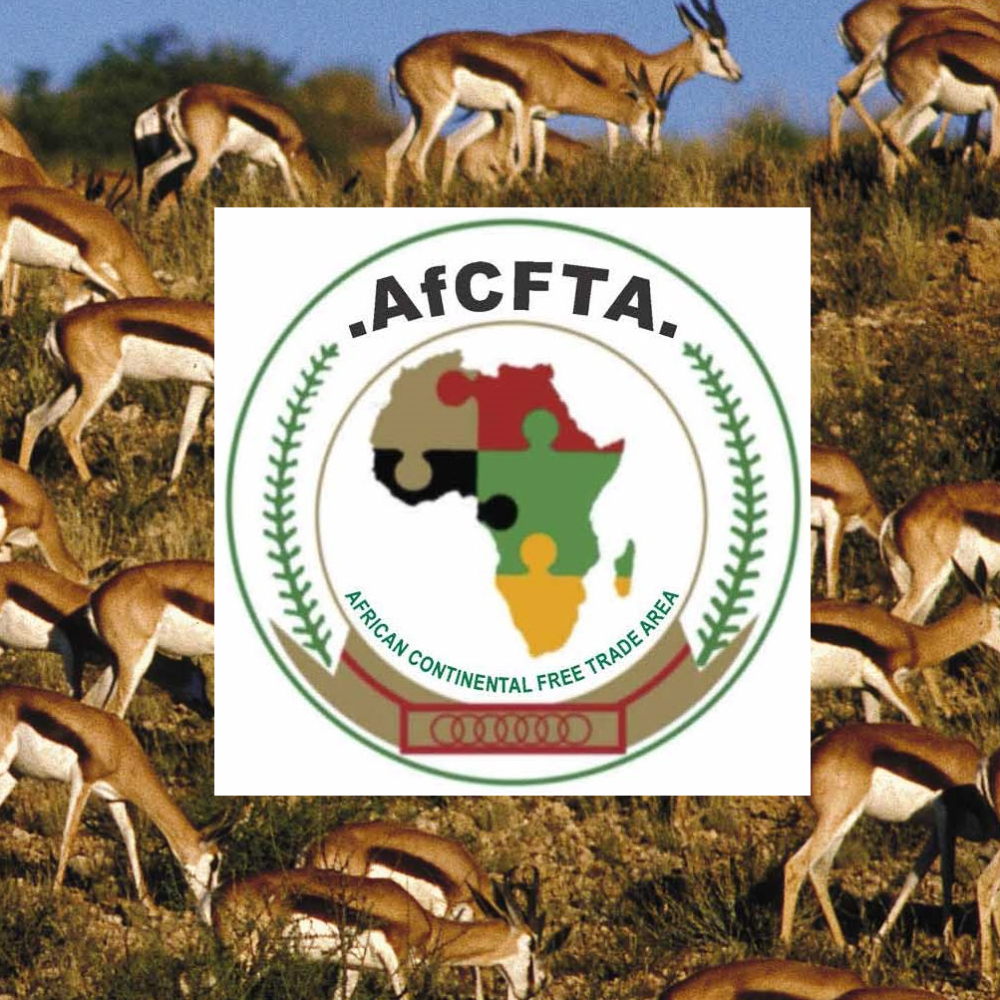
Liberalising intra-Africa trade in wild meat - Policy recommendations
Stellenbosch
South Africa
Register for one or more presentations
1st Presentation - Tue, 13 Dec - 11:00-12:30
|
2nd Presentation - Tue, 13 Dec - 16:00-17:30Register here |
3rd Presentation - Wed, 14 Dec - 16:00-17:30
|
Times are Central African/South African
Presentation on policy recommendations
“The African Continental Free Trade Area (AfCFTA) is the world’s largest free trade area bringing together the 55 countries of the African Union… to create a single market for the continent. The aim is to enable the free flow of goods and services across the continent and boost the trading position of Africa in the global market… AfCFTA has the potential both to boost intra-Africa trade by 52.3 percent by eliminating import duties and to double this trade if non-tariff barriers are also reduced.”
AfCFTA can facilitate an increase in the intra-Africa trade in wildlife products. However, many barriers to wildlife trade hamper growth, notably non-tariff barriers. "Non-Tariff Barriers (NTBs) refer to a wide range of restrictive regulations and procedures, imposed by government authorities, that make importation or exportation of products difficult and/or costly."
The African Wildlife Economy Institute (AWEI) is researching the opportunities offered by AfCFTA to scale up intra-Africa trade in wildlife products, specifically wild meat, and, in so doing, to alleviate poverty and improve nutrition in Africa. The AWEI research project, led by international trade expert and AWEI Fellow, Dr Biandri Joubert, has looked into the nature and scope of NTBs faced by the wild meat industry with particular reference to producers in Namibia, South Africa, and Zambia, and developed a set of policy recommendations for use by various stakeholders.
Dr Joubert will start with an overview of AfCFTA with its aim "to eliminate trade barriers and boost intra-Africa trade," and "to contribute to establishing regional value chains in Africa, enabling investment, and job creation." This will include a technical and practical overview of the Non-Tariff Barriers Reporting, Monitoring, and Eliminating Mechanism.
Policy recommendations will include:
- Domestic policy recommendations for countries to improve regulatory frameworks to encourage sustainable wild meat trade; and
- Recommendations for enhancing the accessibility and effectiveness of the AfCFTA NTB Mechanism,
These recommendations are designed to be politically feasible, pragmatic, and targeted.
Who should attend?
Are you a stakeholder in Africa's wildlife economy?
These findings and recommendations will be of interest to stakeholders in wildlife economies across the African continent – producers, processors, wholesalers, retailers, consumers, regulators, and policy makers.
If so, you are most welcome to attend one or more of the presentations on our research.
Get updates by email
Through impactful research, stakeholder engagement, and professional development, AWEI is supporting the wildlife economy across Africa. Please subscribe for occasional updates on our work and forthcoming events.
Sign up for a quarterly dose of AWEI insights
In a complex and changing world, AWEI generates strategic ideas, conducts independent analysis on wildlife economies, and collaborates with global scholar-practitioners to provide training and expertise for biodiversity conservation, climate resilience, and inclusive economic opportunities in Africa.





